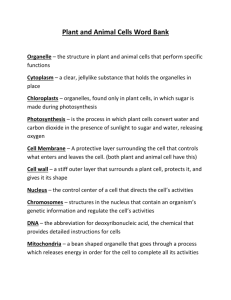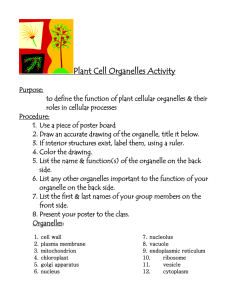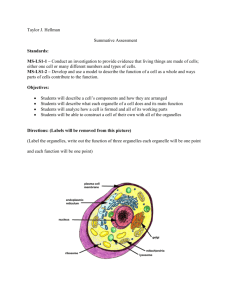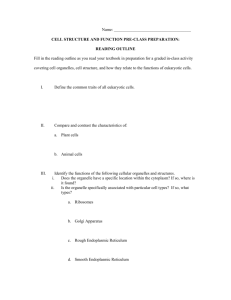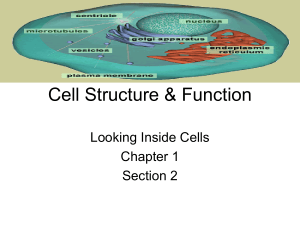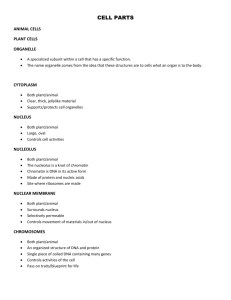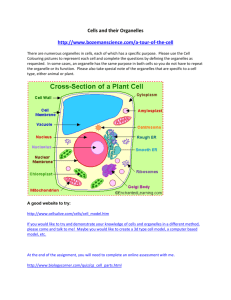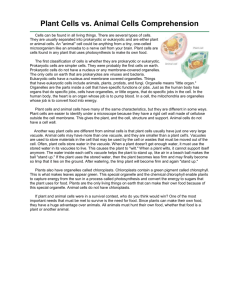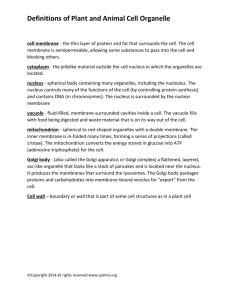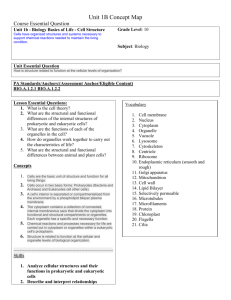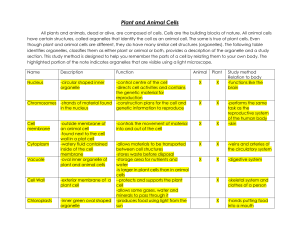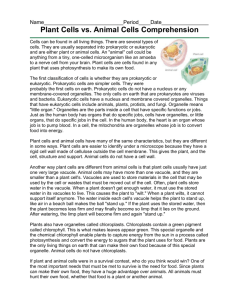Cell Organelles Diagnostic Test: Biology Assessment
advertisement
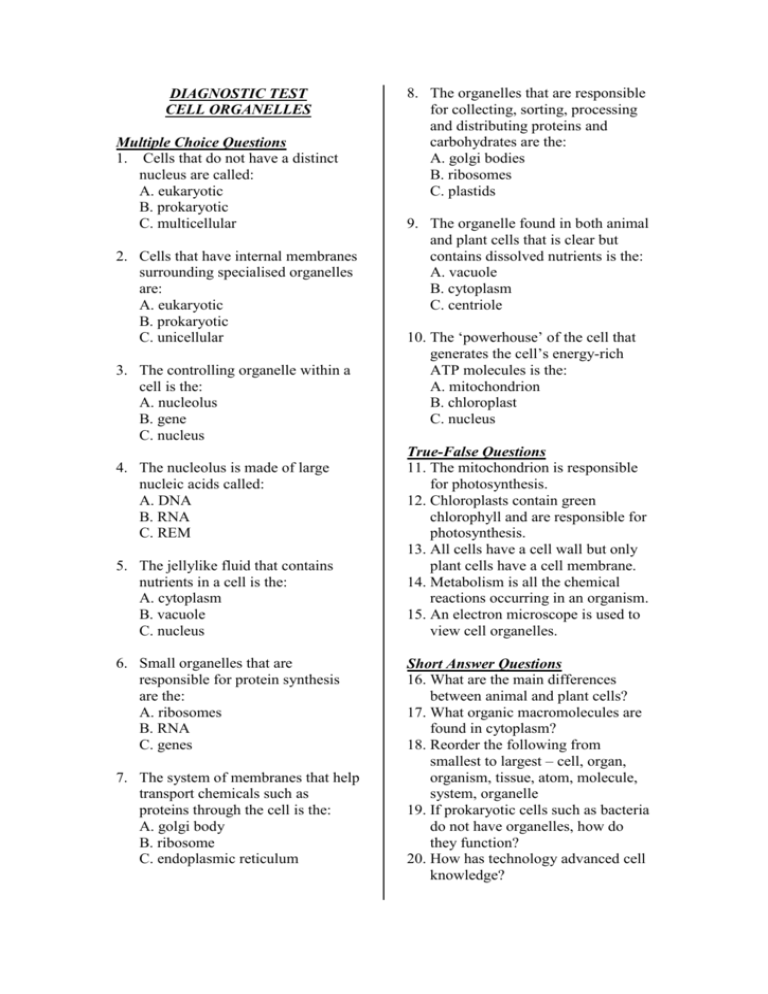
DIAGNOSTIC TEST CELL ORGANELLES Multiple Choice Questions 1. Cells that do not have a distinct nucleus are called: A. eukaryotic B. prokaryotic C. multicellular 2. Cells that have internal membranes surrounding specialised organelles are: A. eukaryotic B. prokaryotic C. unicellular 3. The controlling organelle within a cell is the: A. nucleolus B. gene C. nucleus 4. The nucleolus is made of large nucleic acids called: A. DNA B. RNA C. REM 5. The jellylike fluid that contains nutrients in a cell is the: A. cytoplasm B. vacuole C. nucleus 6. Small organelles that are responsible for protein synthesis are the: A. ribosomes B. RNA C. genes 7. The system of membranes that help transport chemicals such as proteins through the cell is the: A. golgi body B. ribosome C. endoplasmic reticulum 8. The organelles that are responsible for collecting, sorting, processing and distributing proteins and carbohydrates are the: A. golgi bodies B. ribosomes C. plastids 9. The organelle found in both animal and plant cells that is clear but contains dissolved nutrients is the: A. vacuole B. cytoplasm C. centriole 10. The ‘powerhouse’ of the cell that generates the cell’s energy-rich ATP molecules is the: A. mitochondrion B. chloroplast C. nucleus True-False Questions 11. The mitochondrion is responsible for photosynthesis. 12. Chloroplasts contain green chlorophyll and are responsible for photosynthesis. 13. All cells have a cell wall but only plant cells have a cell membrane. 14. Metabolism is all the chemical reactions occurring in an organism. 15. An electron microscope is used to view cell organelles. Short Answer Questions 16. What are the main differences between animal and plant cells? 17. What organic macromolecules are found in cytoplasm? 18. Reorder the following from smallest to largest – cell, organ, organism, tissue, atom, molecule, system, organelle 19. If prokaryotic cells such as bacteria do not have organelles, how do they function? 20. How has technology advanced cell knowledge? DIAGNOSTIC TEST CELL ORGANELLES ANSWERS 1.B 2.A 3.C 4.B 5.A 6.A 7.C 8.A 9.A 10.A 11.F 12.T 13.F 14.T 15.T 16. Animal cells lack the extra cell wall and the chloroplasts that plant cells have. Vacuoles are fewer and smaller in animal cells. 17. Carbohydrates, proteins and lipids 18. Atom, molecule, organelle, cell, tissue, organ, system, organism 19. Prokaryotic cells contain the same chemicals (e.g. DNA, enzymes for respiration) that other more complex cells have. They are simply less well organised. 20. With the development of light microscopes and then electron microscopes, scientific knowledge of the cell has become more advanced.
